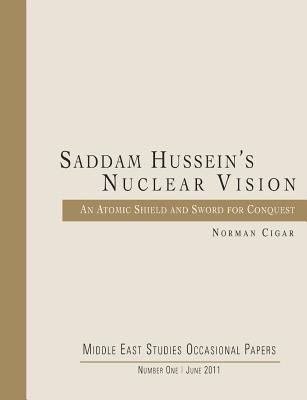
- We will send in 10–14 business days.
- Author: Norman Cigar
- Publisher: CreateSpace Independent Publishing Platform
- Year: 2011
- Pages: 100
- ISBN-10: 1475058829
- ISBN-13: 9781475058826
- Format: 18.9 x 24.6 x 0.5 cm, minkšti viršeliai
- Language: English
- SAVE -10% with code: EXTRA
Reviews
Description
This study examines why Saddam Hussein pursued nuclear weapons and, as a basic aspect of that question, how he might have employed that capability had he acquired it, whether for deterrence, warfighting, or something else. As the key decision maker in Iraq, Saddam's own thinking was central. His perception of regional threats, primarily from Iran and Israel, were a prime motivator. In addition, Saddam viewed acquiring nuclear weapons as a potent vehicle to help legitimize his regime and burnish his personal image as leader both at home and in the Arab World, as a modernizer and defender of national interests. A better understanding of the Iraqi case can also clarify the enduring issues related to how regional leaders may view nuclear weapons in this world of looming proliferation.
EXTRA 10 % discount with code: EXTRA
The promotion ends in 21d.16:14:33
The discount code is valid when purchasing from 10 €. Discounts do not stack.
- Author: Norman Cigar
- Publisher: CreateSpace Independent Publishing Platform
- Year: 2011
- Pages: 100
- ISBN-10: 1475058829
- ISBN-13: 9781475058826
- Format: 18.9 x 24.6 x 0.5 cm, minkšti viršeliai
- Language: English English
This study examines why Saddam Hussein pursued nuclear weapons and, as a basic aspect of that question, how he might have employed that capability had he acquired it, whether for deterrence, warfighting, or something else. As the key decision maker in Iraq, Saddam's own thinking was central. His perception of regional threats, primarily from Iran and Israel, were a prime motivator. In addition, Saddam viewed acquiring nuclear weapons as a potent vehicle to help legitimize his regime and burnish his personal image as leader both at home and in the Arab World, as a modernizer and defender of national interests. A better understanding of the Iraqi case can also clarify the enduring issues related to how regional leaders may view nuclear weapons in this world of looming proliferation.


Reviews